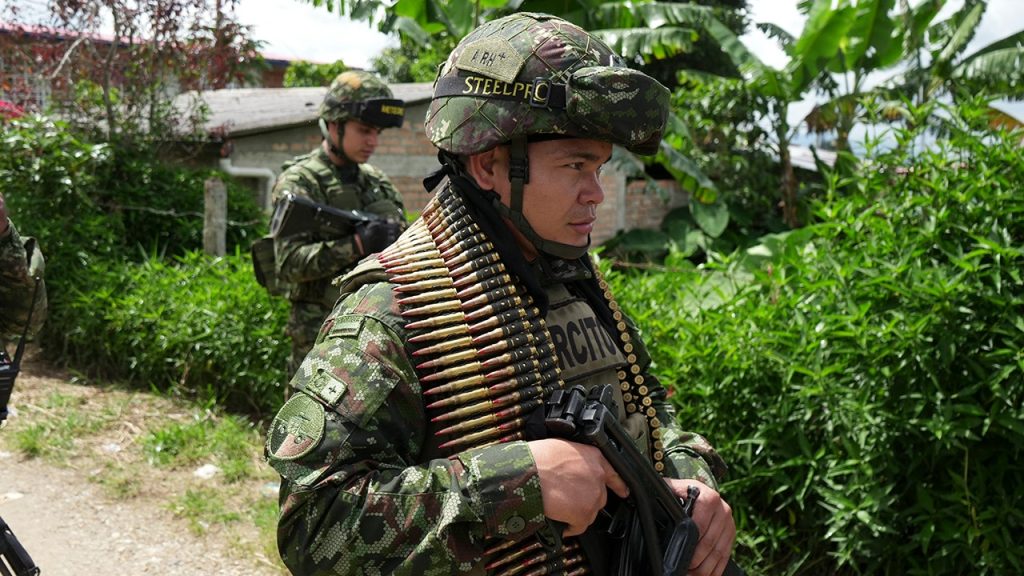Violence escalated in southwestern Colombia with a bomb blast injuring six people in Jamundi and an attack on a police station in Morales that left two officers dead. The attacks were attributed to the FARC-EMC, a rebel group that broke off from the Revolutionary Armed Forces of Colombia and refused to sign a 2016 peace deal, leading more than 14,000 rebels to demobilize. The group’s western faction, led by Ivan Mordisco, walked away from peace talks in April and has since carried out a series of attacks on military and police forces. Analysts believe this faction is attempting to establish itself as the only group directly attacking the state, potentially causing a split within the EMC and leading to increased conflict.
Elizabeth Dickinson, a Colombia analyst at the International Crisis Group, warned that the split within the EMC could be permanent, leading to fragmentation within the conflict. With around 5,000 fighters, the EMC is the third-largest armed group in Colombia. President Gustavo Petro has pursued total peace by engaging in peace talks with rebel groups since taking office, signing ceasefires with some groups and discussing development programs and rural reforms. The strategy has seen mixed results, as violence between the military and armed groups has decreased, but crimes like kidnapping, extortion, and child recruitment have increased as armed groups vie for control of illegal businesses left behind by the FARC after the peace deal.
The continued violence and attacks by rebel groups like the FARC-EMC have disrupted peace talks and have led to fears of further fragmentation of the conflict. The rural communities are increasingly vulnerable as armed groups strengthen their grip and fight for control of illegal businesses, including illegal mining and the drug trade. The unrest has implications for civilians as they become caught in the crossfire of armed groups competing for control and territory in Colombia. The government continues to push for peace talks and ceasefires with rebel groups, but the situation remains unstable, with the potential for more violence and conflict in the region.
The violence in southwestern Colombia highlights the challenges faced by the Petro administration in achieving total peace and ending the conflict in the country. The continuation of attacks by rebel groups like the FARC-EMC demonstrates the persistent threat to government forces and civilians in the region. The government’s efforts to engage in peace talks and sign ceasefires have not been entirely successful, as armed groups continue to commit crimes and seek control of illegal businesses. The fragmentation of the conflict poses a significant risk to civilians and the future stability of Colombia, as rebel groups vie for power and territory in the absence of a comprehensive peace agreement.
As violence escalates in southwestern Colombia, concerns over the safety of civilians and the effectiveness of the government’s peace efforts are mounting. The attacks by the FARC-EMC and other rebel groups have led to increased insecurity in the region, with armed groups vying for control of territory and illegal businesses. The potential split within the EMC and the shift towards fragmentation in the conflict could have long-lasting implications for the stability of Colombia. Despite the government’s attempts to pursue peace talks and ceasefires, the situation remains volatile, with the risk of further violence and unrest threatening the progress towards total peace in the country.













